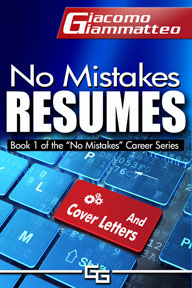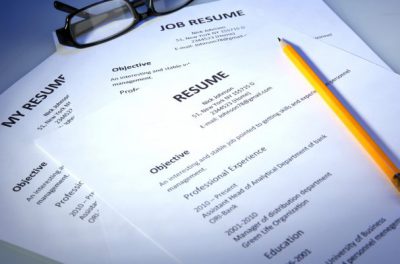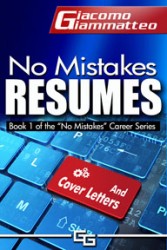Resume Tools
I’m going to start this post out discussing tools. You might wonder what tools have to do with resumes but you’ll see they have a lot in common; in fact, your entire resume is a tool, and it consists of hundreds of other tools—words.
When you mention “tools,†most people think of a mechanic’s toolbox filled with socket wrenches, or a carpenter with different types of hammers and saws. Maybe they picture an electrician’s bag with flat-head or Phillips-head screwdrivers. Or even a chef’s drawer with individual slots for teaspoons, tablespoons, and an assortment of carving, paring, and serrated knives.
But Words Are Tools Also
Some tools do a lot of jobs; they’re versatile and flexible—like a claw hammer or a standard carving knife. But many tools have more specific uses. You wouldn’t use a meat cleaver to cut a tomato, or a flat-head screwdriver to loosen a Phillips-head screw.
There are words like that, too. In a book I was reading, the main character “raced†to get dressed. I knew what the author meant, but wouldn’t it have been better to have said the person “rushed†to get dressed?
Raced would be perfect if that person was trying to catch a bus before it left, as in, he raced to catch the bus, but rushed fits better in the dressing scene.
Words like this pop up on resumes quite often. Three of them get misused regularly.
Assure/Ensure/Insure
These words are frequently found on resumes and in all business writing. They demand to be included in any misused words list. Many people use these words interchangeably, and, according to most grammarians, erroneously. They all have the general meaning of making the outcome of a particular circumstance certain; however, there are distinct differences.
I often see statements like this on a resume:Â
“Insured delivery of products on time and under budget by…”
The proper way to state that would be “Ensured delivery…”
Here are examples from real resumes, job descriptions, and cover letters:Â
- Assure plant is compliant with regulations and is maintained in an inspection-ready status.
- Project management model implemented to insure effective execution of facility projects.
- Assure appropriate investigation of product defects, rejects and systems failures, with emphasis on corrective action. (From job description)
- I can ensure you…(from cover letter)
The one thing all of these have in common is that they’re all used in the wrong way. Numbers 1, 2, and 3, should all be ensure, and the last one should be assure.
To Break It Down Further:
Assure is typically used to “assure” someone/or some living thing, of the outcome. Example: You might “assure” your boss that the project will get done on time and under budget. An assurance is similar to a promise.
Ensure is used more for “things” than people. So…to “ensure” the project gets done on time, you hire more people and secure additional resources.
Insure, in its pure form, refers to money or insurance. So I “insured” the project for $10 million dollars in case of accidents.
The easiest way to remember the distinction between these words is:
- Assure is used for people. (You might make an “ass†of yourself if you promise your boss something and don’t deliver.)
- Ensure is used for things. (You took an action, and that action ensured the project would get done on time.)
- Insure deals with money/insurance.
Bottom Line
Making a mistake with one of these words isn’t a deal killer. Nobody is going to toss your resume because you misused one of them. But if you’re going to do a resume, you might as well do it right. Making sure you use the most appropriate word is a good start to that. It might not help you get the job, but it certainly won’t hurt.
If you liked this post, you might want to check out my resume/cover letter book, No Mistakes Resumes. If you buy it here, it’s guaranteed. In fact, to my knowledge, my books are the only guaranteed books on the Internet.






















Connect
Connect with us on the following social media platforms.